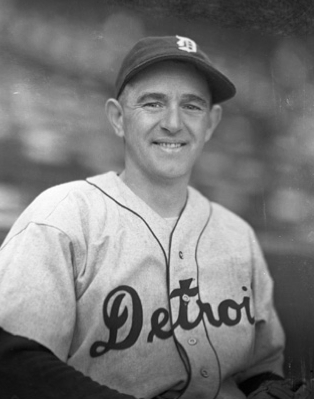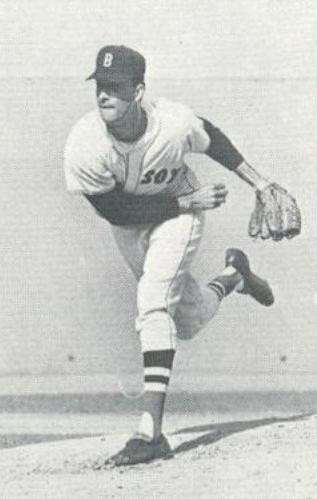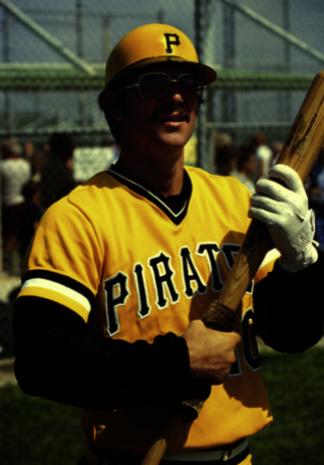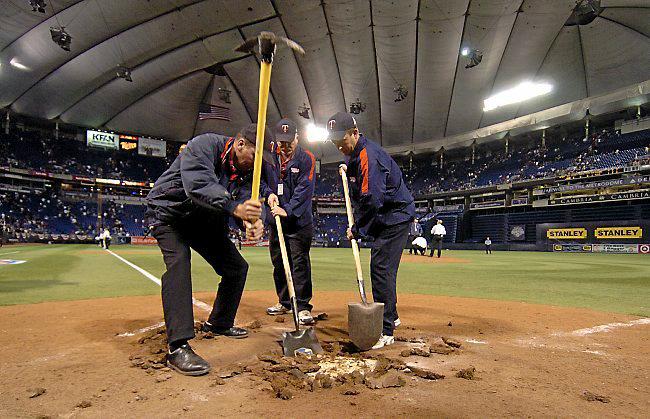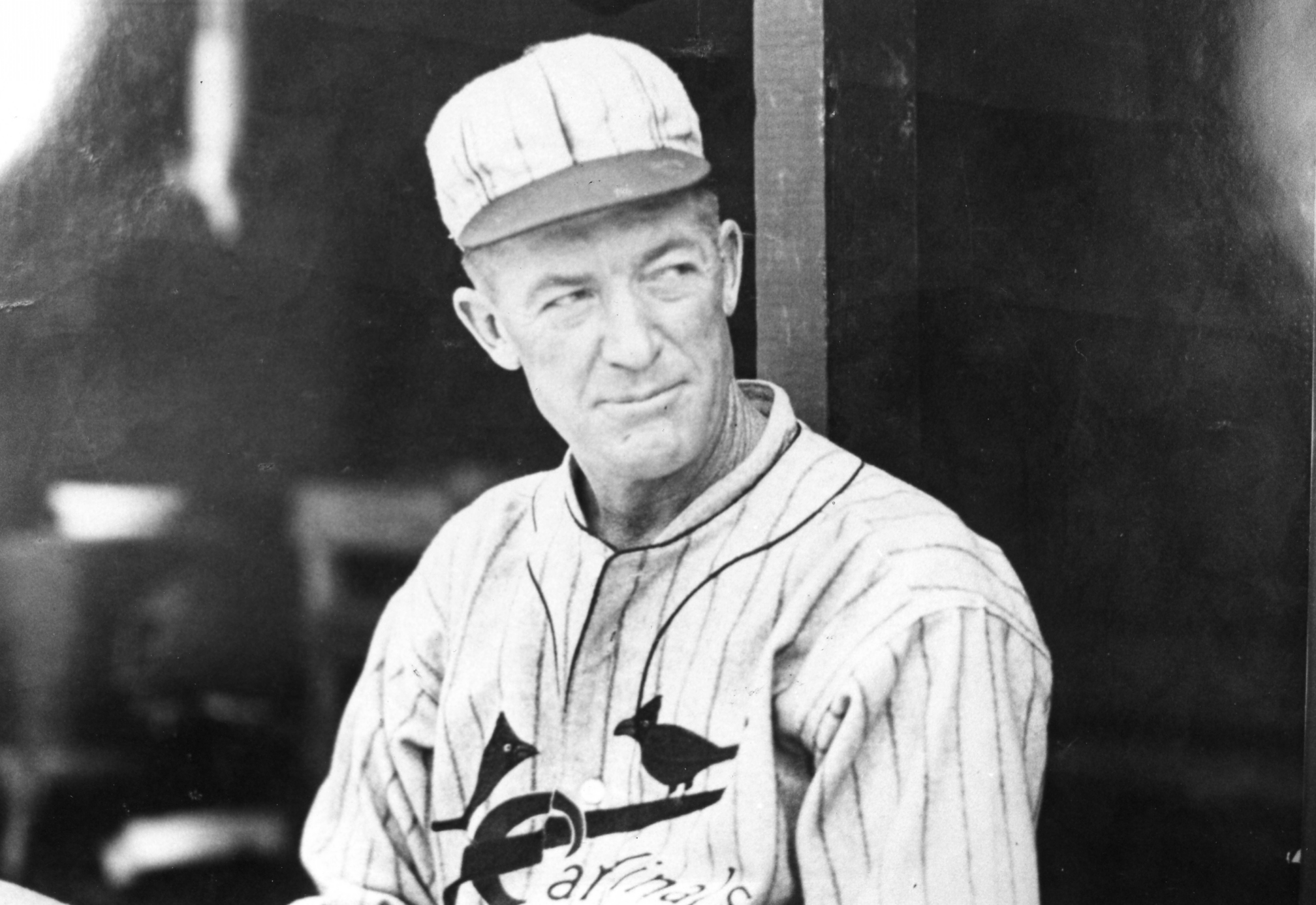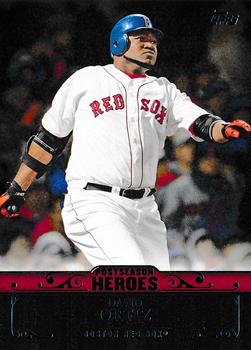October 9, 1914: Rudolph outpitches Bender in World Series opener
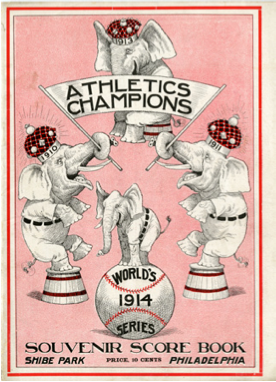 The upstart Boston Braves surprised the defending World Series champion Philadelphia Athletics in Game One as postseason novice Dick Rudolph easily outpitched the seasoned veteran Chief Bender, 7-1. It was the first time in a Series game that Philadelphia manager Connie Mack – with four prior World Series under his belt – had to remove his starter for ineffectiveness rather than injury.1 Rudolph’s gem, delivered on a day when his wife gave birth to a girl, heralded a Series in which Braves pitching and dominating defense stopped Athletics hitting, showing that the unique pressures of the fall classic could not cool Boston manager George Stallings’ hot squad.
The upstart Boston Braves surprised the defending World Series champion Philadelphia Athletics in Game One as postseason novice Dick Rudolph easily outpitched the seasoned veteran Chief Bender, 7-1. It was the first time in a Series game that Philadelphia manager Connie Mack – with four prior World Series under his belt – had to remove his starter for ineffectiveness rather than injury.1 Rudolph’s gem, delivered on a day when his wife gave birth to a girl, heralded a Series in which Braves pitching and dominating defense stopped Athletics hitting, showing that the unique pressures of the fall classic could not cool Boston manager George Stallings’ hot squad.
One would have thought that the more experienced Philadelphia team would show more patience at the plate, defensive grace with its $100,000 infield, and moxie on the bases. In fact, the opposite transpired in all three categories, both in Game One and throughout the World Series. “The beating was perhaps the worst that has ever been handed to an opponent in the opening game of a postseason series between major league clubs,” Tim Murnane wrote in the Boston Globe.2
The trio of Boston starters all used the aggressiveness of the Athletics against them. No one did so more effectively than Rudolph, who, after Game One, observed, “I found out what makes the Athletics such a hitting team. They’re all what we call free swingers.”3
One sportswriter gushed that Rudolph “pitched one of the most remarkable games in the history of the sport. … He used a slow ball, a curve, his spitter, and not once during the game did the Athletics really threaten him.”4
In addition to Rudolph’s off-speed stuff, his “slow, deceptive delivery … proved the Mackmen’s undoing, for they are notoriously weak on this service, and Rudolph was at his best in this respect today.”5
By failing to make Rudolph, who threw fewer than ten pitches in both the eighth and ninth innings, and the other Braves starters work, Philadelphia never forced Boston to turn to its questionable pitching depth, allowing Game Two starter Bill James to relieve Lefty Tyler in extra innings in Game Three and Rudolph to pitch Game Four on regular rest. With runners on the corners and none out in the second inning, for instance, “Barry helped Rudolph out immensely by fanning on a ball about a foot outside.”6
With multiple baserunners in each of the first two frames, Game One began auspiciously for the Athletics. After Bender retired the Braves in order in the first, Eddie Murphy singled. Rube Oldring then bunted. Hank Gowdy “ran down to retrieve it and with little time to spare, shot it toward first base high in the air. By a wonderful jump, Butch Schmidt speared the ball and got down on the bag in time to retire the sprinting Oldring.”7
Rudolph then walked Eddie Collins to put runners on first and second for Frank Baker. Rather than take a strike following the free pass, Baker hit the first pitch toward “the right field grandstand seats, which Schmidt … mitted for the second out. Murphy tried to edge up to third … but Schmidt’s bounding throw reached Deal in time … to tag out Eddie and end the promising inning in a cloud of gloom.”8
“Schmidt’s great throw and Deal’s swift stab probably decided the game.”9
The promising start fizzled with a single play that evinced several themes that would run throughout the Series: poor situational hitting and blundering baserunning by Philadelphia, and sharp pitching and sparkling defense by the Boston infield, including repeated fine plays by its unheralded corner players.
The Braves had timely hitting, too, especially from Gowdy, the surprising batting star of the 1914 World Series. Thanks to Gowdy, the Braves took a lead that they would not relinquish in the top of the second. Gowdy drove in Possum Whitted, who had walked, with a double, and Rabbit Maranville scored Gowdy with a single. The Athletics came back with a Stuffy McInnis walk and an Amos Strunk single. McInnis scored on an error by Herbie Moran in left, and Strunk went to third.
Philadelphia had the tying run on third with no out. But Jack Barry struck out, the first of eight K’s for Rudolph, and Wally Schang hit to Johnny Evers, who “scooped up the ball and shot it to Gowdy, nailing Strunk at the plate by a very narrow margin.”10 Rudolph then sealed the squander by getting Bender to force Schang.
The Athletics ran into another out in the fourth inning, when Strunk tried to stretch a single, but “was cut down at second on Joe Connolly’s sharp relay into Maranville. Strunk probably would have made the midway sack had he not lost his stride in rounding first base.”11
In his brief appearances in the 1914 Series, Strunk would struggle on the basepaths and in the field before giving way to injury. He made two hits in his first two trips to the plate, but failed in his final five opportunities. His successor, Jimmy Walsh, also fared poorly in center field and running the bases.
Boston got far better play from its key substitute. Over the next three games, the Braves, minus injured slugger Red Smith, who spent the Series in a Brooklyn hospital laid up with a broken leg, would barely exceed their run total from this first contest, but the fine fielding of Maranville remained constant throughout the quartet: “Barry smote a Texas Leaguer in the fifth inning. Connolly could not reach it, and Deal lacked the leg locomotion to get near it. Maranville almost dropped out of a cloud and with his back to the ball, he nailed it.”12
The Braves broke open a 3-1 run game with a trio of runs in the sixth inning, when Bender was knocked from the box. With runners on first and second with one out, Whitted delivered the key blow, a two-run triple, when he “connected squarely with one of Bender’s fast straight ones and it was going even faster and straighter toward the score-board in far centre field after Whitted had given it his special slugging treatment.”13
Charlie Deal ended the four-run sixth inning by hitting into his third double play of the game. Forced into service because of the Smith mishap, the unheralded Deal made up for his lackluster bat with his glove in both the first and final frames of the game.14 In the latter case, a Philadelphia paper noted, “No third baseman could have handled McInnis’ solid crack in the ninth better than did Deal, who pulled the ball down with his bare hand.”15
Deal later made the Series-clinching play on McInnis to end Game Four.
In a Series marred by runners giving up outs on the basepaths at inopportune times, the Braves had the opener’s most daring baserunning play, too, when the slow-footed pair of Butch Schmidt and Hank Gowdy pulled off a double steal in the eighth to make the final score 7-1. “Collins caught Lapp’s short throw, but in returning the ball Eddie threw high and Schmidt slid under Lapp.”16
Stallings may have called the play to send a message that the Braves would not back down even up by a big score, or he may have simply wanted to avoid having Deal, in the box with Gowdy on first and Schmidt on third, hit into his fourth double play of the game.
With better starting pitching for Philadelphia, the runs would not come so easily for Boston for the rest of the Series, but the ultimate results would remain the same.
This article is included in “The Miracle Braves of 1914: Boston’s Original Worst-to-First World Series Champions” (SABR, 2014), edited by Bill Nowlin.
Notes
1 The Boston captain did point, however, to a physical affliction affecting Bender, writing that Chief “has had to have his arm treated with electricity after every game he pitched during the season and for several days afterwards to put life into it.” John J. Evers, “Hank Gowdy and Rudolph Heroes,” Boston Post, October 10, 1914, 11.
2 T.H. Murnane, “Game Is Braves’ 7 to 1,” Boston Daily Globe, October 10, 1914, 1.
3 “Dick Rudolph’s a Modest Hero,” Philadelphia Bulletin, October 10, 1914, 9.
4 Hugh S. Fullerton, “Connie’s Machine Is Good As Ever, Says Fullerton,” [Philadelphia] Evening Ledger, October 10, 1914, 2.
5 “Braves Win First Game, 7 to 1,” Boston Daily Advertiser, October 10, 1914, 1.
6 Eddie Collins, “Eddie Collins Says Mackmen Have No Excuses,” [Philadelphia] Evening Ledger, October 10, 1914, p. 2. After Game Four, Collins also complained, “We never attempted to find out anything about Rudolph. By this I mean whether it would be more to our advantage, say, to wait him out, or if bunting would upset him.” Eddie Collins, “Pitchers Made Us ‘Look Bad,’ Says Collins,” [Philadelphia] Evening Ledger, October 14, 1914, 2.
7 Paul H. Shannon, “No Excuses Left for Mack’s Men,” Boston Post, October 10, 1914, 11.
8 “Hank Gowdy Swung at a 100 P.C. Mark,” Philadelphia Inquirer, October 10, 1914, 11.
9 R.E. McMillin, “Athletics Smashed by Braves 7 to 1,” Boston Journal, October 10, 1914, 10.
10 “Two Important Plays in the Game,” Boston Post, October 10, 1914, 13.
11 “Hank Gowdy Swung at a 100 P.C. Mark,” Philadelphia Inquirer, October 10, 1914, 11.
12 “Mackmen’s Defeat Decisive – But Remember They Came back in ’11,” Philadelphia Bulletin, October 10, 1914, 8.
13 Walter E. Hapgood, “Braves Win Opening Game of World Series,” Boston Herald, October 10, 1914, 8.
14 “Tyler places great confidence in Deal. ‘He is the dark horse,’ the crack pitcher averred. ‘I look for him to do great things. He’s steady and calm and nervy, and while he is not as strong at the bat as Smith, he’s no laggard with the stick,’ ” in “Smith’s Loss Fails to Depress Braves,” Philadelphia Bulletin, October 7, 1914, 17.
15 “Stallings’ Braves Defeat Athletics; Knock out Bender,” Philadelphia Inquirer, October 10, 1914, 1.
16 On the play, “Gowdy kept going for third and Lapp’s throw beat him to the bag,” in “Stallings’ Braves Defeat Athletics; Knock out Bender,” Philadelphia Inquirer, October 10, 1914, 11.
Additional Stats
Boston Braves 7
Philadelphia A’s 1
Game 1, WS
Shibe Park
Philadelphia, PA
Box Score + PBP:
Corrections? Additions?
If you can help us improve this game story, contact us.


